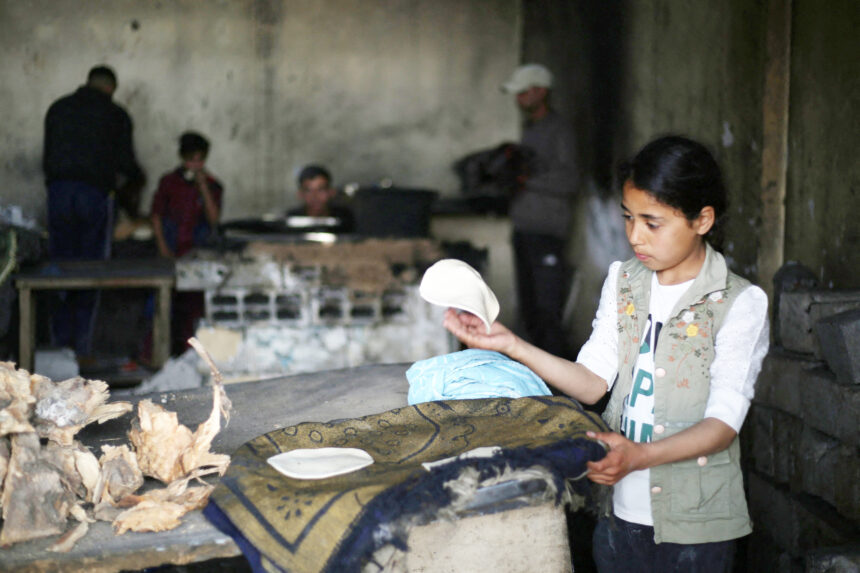THE HAGUE – A top Palestinian official told the International Court of Justice yesterday that Israel was blocking humanitarian aid to Palestinians in Gaza as a “weapon of war”, at the start of a week of hearings at the UN’s top court. Israel is not participating at the ICJ, but hit back immediately, dismissing the hearings as “part of the systematic persecution and delegitimisation” of the country.
The ICJ is hearing dozens of nations and organisations to draw up a so-called advisory opinion on Israel’s humanitarian obligations to Palestinians, more than 50 days into its total blockage on aid entering war-ravaged Gaza.
Top Palestinian official Ammar Hijazi told judges that “all UN-supported bakeries in Gaza have been forced to shut their doors”.
“Nine of every 10 Palestinians have no access to safe drinking water. Storage facilities of the UN and other international agencies are empty,” added Hijazi. “These are the facts. Starvation is here.
Humanitarian aid is being used as a weapon of war,” concluded the Palestinian representative.
Speaking in Jerusalem, Israeli foreign minister Gideon Saar said the case in The Hague was “part of a systematic persecution and delegitimisation of Israel”. “It is not Israel that should be on trial.
It is the UN and UNRWA,” he told reporters, referring to the United Nations aid agency for Palestinian refugees.
Israel has banned UNRWA from operating on Israeli soil, after accusing some of the agency’s staff of participating in the Hamas 7 October 2023 attack that sparked the conflict. Independent investigations say it has not provided evidence for its headline allegation.
UNRWA Secretary General Philippe Lazzarini urged Israel “as an occupying power” to “provide services or facilitate their delivery — including through UNRWA — to the population it is occupying”.
In December, the UN’s General Assembly asked the ICJ for an advisory opinion “on a priority basis, and with the utmost urgency”.
The UN asked judges to clarify Israel’s legal duties towards the UN and its agencies, international organisations or third-party states to “ensure and facilitate the unhindered provision of urgently-needed supplies essential to the survival of the Palestinian civilian population”.
Israel strictly controls all inflows of international aid vital for the 2.4 million Palestinians in the Gaza Strip. It halted aid deliveries to Gaza on 2 March, days before the collapse of a ceasefire that had significantly reduced hostilities after 15 months of war. Supplies are dwindling and the UN’s World Food Programme (WFP) on Friday said it had sent out its “last remaining food stocks” to kitchens.
AFP footage from a community kitchen in Gaza City shows scores of boys and girls crowded outside the facility, pushing their pots and pans forward in a desperate attempt to secure whatever food they can.
The UN estimates 500,000 Palestinians have been displaced since the two-month ceasefire ended in mid-March. Israel resumed air bombardment on 18 March, followed by renewed ground attacks. This has triggered what the UN has described as “likely the worst” humanitarian crisis the occupied Palestinian territory has faced since the war started after the Hamas 7 October 2023 attack.
That attack resulted in the deaths of 1,218 people on the Israeli side, mostly civilians, according to an AFP tally based on official Israeli figures. Israel’s retaliatory military offensive has killed at least 52 243 people in Gaza since October 2023, also mostly civilians, according to the health ministry in the Hamas-run territory.
At least 2 111 Palestinians have been killed since 18 March. The UN considers the ministry’s figures reliable. The Israeli government says the assault aims to force Hamas to free the remaining captives, 58 of whom are still being held in Gaza.
Hostages’ relat ives have said it could “sacrifice” their loved ones. Although the ICJ’s advisory opinions are not legally binding, the court believes they “carry great legal weight and moral authority”.
Palestinian envoy to the UN Riyad Mansour told reporters the Palestinians were building an international law case against Israel “block on top of another block”. “We are very confident that after this horrific tragedy of our people, especially in the Gaza Strip, the arc of justice is bending toward Palestine, toward accomplishing our objectives.” – Nampa/AFP


